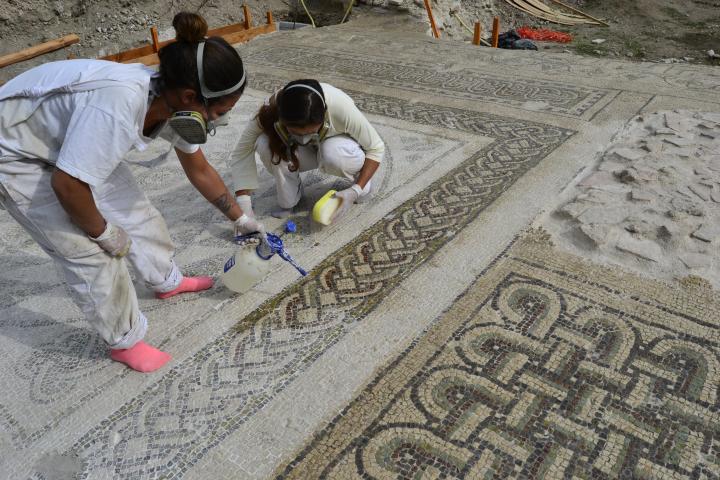Getting involved
We are always keen to welcome returning and new participants to the project.

The University of Edinburgh and Apolline Project investigations at Aeclanum employ a full suite of multi-method archaeological approaches, including excavation, architectural survey, geophysics, photogrammetry and GIS, archaeobotany, osteology, ceramic and marble analysis, conservation and public archaeology. Excavations in 2019 will focus on the area of the theatre and the baths, where our understanding of late antique Aeclanum is increasingly rapidly. Students will be exposed both to monumental Roman architecture and rich finds of associated materials, including marble, as well as to late antique interventions which have left behind a fascinating record of both remodelling and spoliation.
The project at Aeclanum is run as a field school, with tuition provided on site. In 2019, the excavation season will begin on the 17 June and participants can attend for two, four or six weeks. Further courses in geophysics, osteology and epigraphy will also be offered. Work on site takes place Monday to Friday between 8.30 and 18.00. Participants have the opportunity to develop their archaeological field techniques and will work on excavation, documentation, survey and finds processing. Typically, participants will excavate in the mornings and work on other activities, especially post-excavations find work, in the afternoon. The ratio of staff to students on the project is extremely high and students will therefore spend more time receiving tailored tuition than is practical in conventional field schools and training excavations; as well as site supervisors, we had a dedicated team of specialists in GIS, survey, finds analysis and laboratory work, and archaeobotany, who will provide further tuition.
More information about practicalities, including travel and accommodation, as well as a link to the application form can be found here.
Any questions can be directed to Dr Ben Russell at ben.russell@ed.ac.uk.

